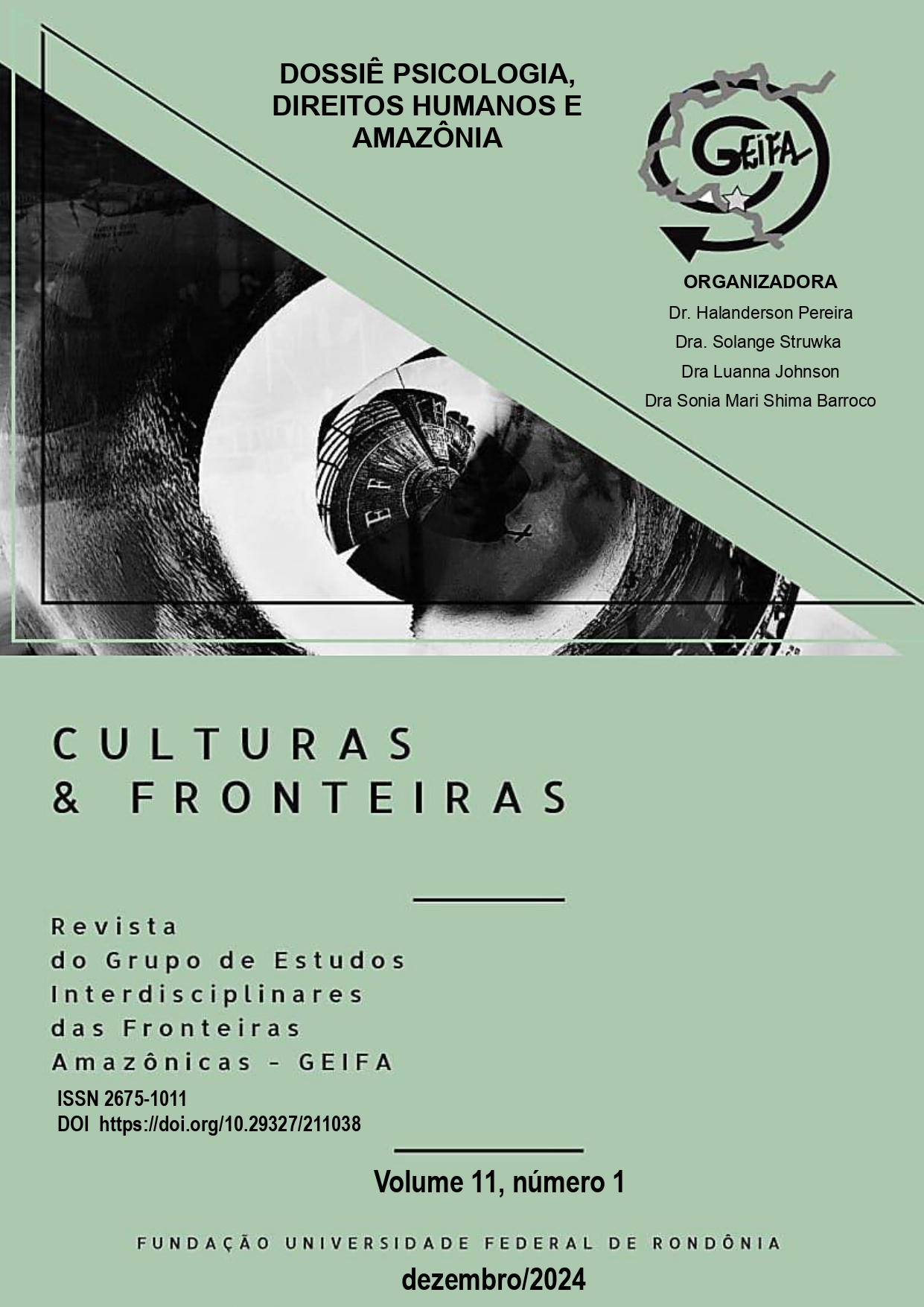A AMAZÔNIA NEGADA É NEGRA: A IMPORTÂNCIA DO TRABALHO E ORGANIZAÇÃO DAS MULHERES RIBEIRINHAS NAS COMUNIDADES DO BAIXO MADEIRA
Abstract
Amazonian riverine women, despite being protagonists in the territories they inhabit, experience an erasure of their personal and collective work, relegating them to historical invisibility. The overall objective of this research was to investigate the trajectories of non-white riverine women leaders from the Baixo Madeira region, who are connected to actions and collectives defending the Amazonian territory, with a focus on gender, race, and/or ethnicity. Four individual interviews were conducted, read, systematized, and analyzed using dialectical historical materialism and Historical-Cultural Psychology. From the field material, we identified the needs, motives, and meanings associated with organizational processes and the territory, forming explanatory categories. Through analysis, we highlighted how patriarchy impacted the history of the interviewees, rendering their contributions invisible and reflecting the contradictions inherent to capitalism. However, despite this objective condition, it's the women who create and sustain collective activities, supporting those in need who arrive in the investigated territory. We also identified that the reasons sustaining these activities and forms of social organization are rooted in practices learned from close individuals, mostly family members. We emphasize the social and scientific significance of this research theme and the necessity to further our understanding of the real and concrete lives of these individuals.





